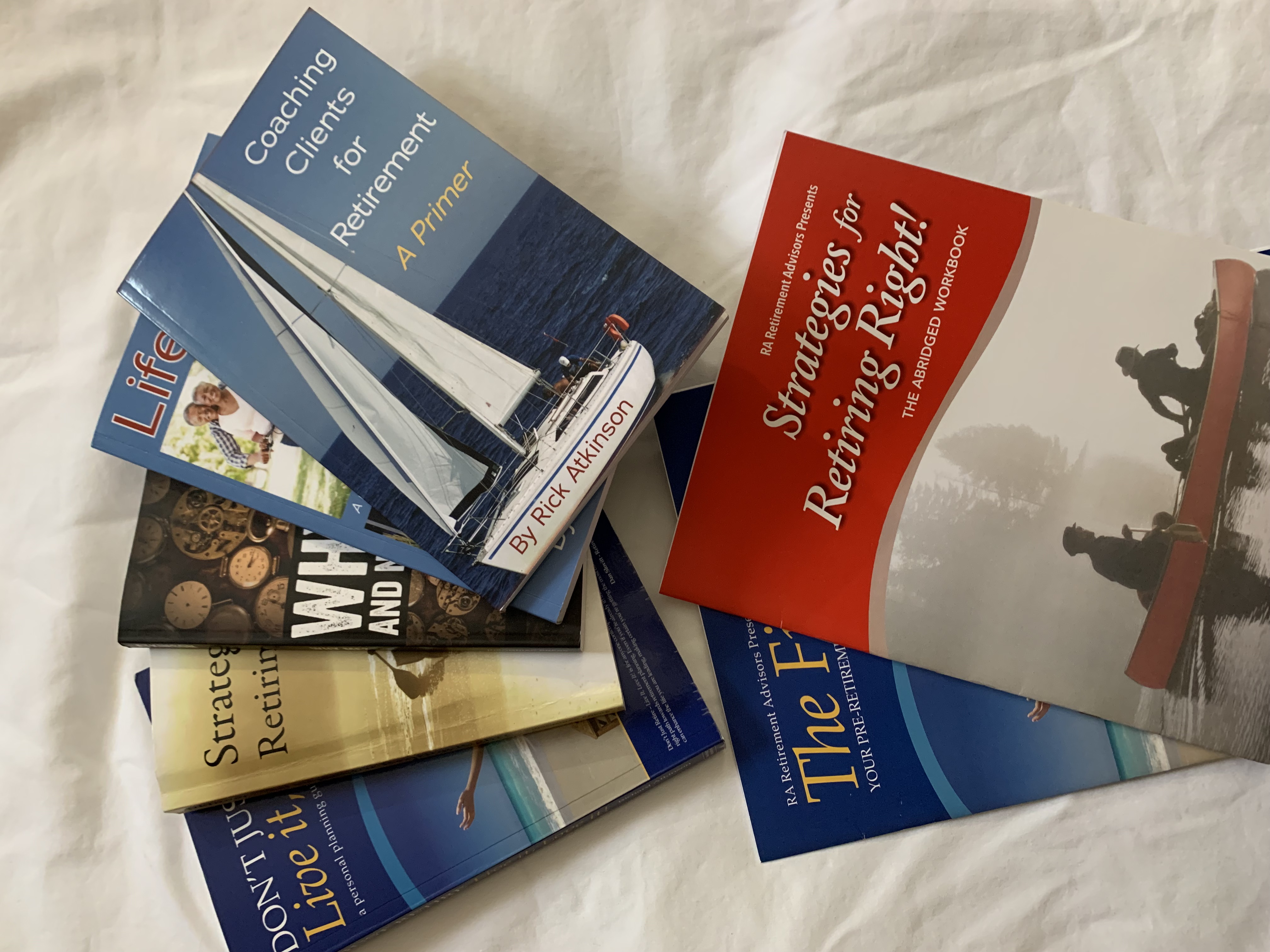Helping Boomers Retire – Why Bother?

Many times I'm asked "Rick, why have you spent so much time helping boomers retire successfully?" "You write books and articles on the subject, you facilitate workshops, you make presentations, but to what end?"
My answer to these inquiring people is somewhat complex but to me, straight forward. It all started over 12 years ago when I gave thought to my human resources career and observations made, incidents remembered, and problems solved and unsolved. One recurring thought was of those I knew who retired many, in my opinion, were not living a successful and fulfilling retirement. This also made me think of my father, Jack. Jack loved his job. His friends were there. His self-image was part of the job. His life happily revolved around work until the day he retired.
My father didn't have hobbies or interests outside of his work. Like many others, his mental, physical, and emotional well-being was set adrift when he no longer had a job to go to. Eighteen months later, he passed away.
Naturally, Jack's retirement and death left a big impression on me. Over my human resources career I eventually came to realize that the difference between thriving and failing to thrive in retirement was not about the money. It was having a clear concept of what makes for a well-rounded, holistic, happy, and stimulating retirement.
As part of my investigation to the reasons why some are either successful or unsuccessful in retirement, I launched an extensive library search, and interviewed hundreds of retired persons. As a result, I found unsuccessful retirees mainly see retirement as an escape. They picture retirement as the time they got rid of a job and/or boss they couldn't stand, finally having left behind the stress of long commutes and undesirable working conditions. Unsuccessful retirees also tend to see retirement essentially as a vacation, and they try to fill their days the same way they did when on vacation. After a while, the vacation model fails and retirement no longer feels like an extended holiday. These retirees are then left with little to do that interests or engages them, and time begins to weigh heavily on their shoulders. Many experience increased frustration and disappointment with their lives, caught up in a vortex they cannot or will not escape.
Successful retirees, on the other hand, I found go beyond the vacation mode of thinking. They have a clear concept of what makes for a well-rounded, holistic, happy, and stimulating retirement. Many acquire that information from people who are already living a successful retirement, What's more, successful retirees apply that information in two key ways: 1. They build their own realistic and well-rounded vision of retirement; 2. They create and implement a plan to make it happen!
My route in life now is to assist boomers to do the same - be successful in retirement. I write and speak about the issues needed to be addressed, and I outline the best practices. My intent is to provide boomers with insight and direction without compromising an individual's own decision-making process.
My methodology is to provide knowledge, thoughts, and insights I've gleaned from research and interviews. My writing, including creating self-directed exercises, presentations, and other learning methods and tools are to help those interested to create their own unique retirement vision and plan.
My main hope is insights will help shine a light on how to best transition successfully from work to life after work. If you are somewhere between the agers of forty-five and sixty-five, it's time to explore your future as a retiree.
I welcome your questions, observations, success stories, and lessons. Thank you for taking a proactive interest in your retirement and all the best in developing a plan that enriches your life.
For information about coaching sessions, please contact me at ramgt75@rogers.com